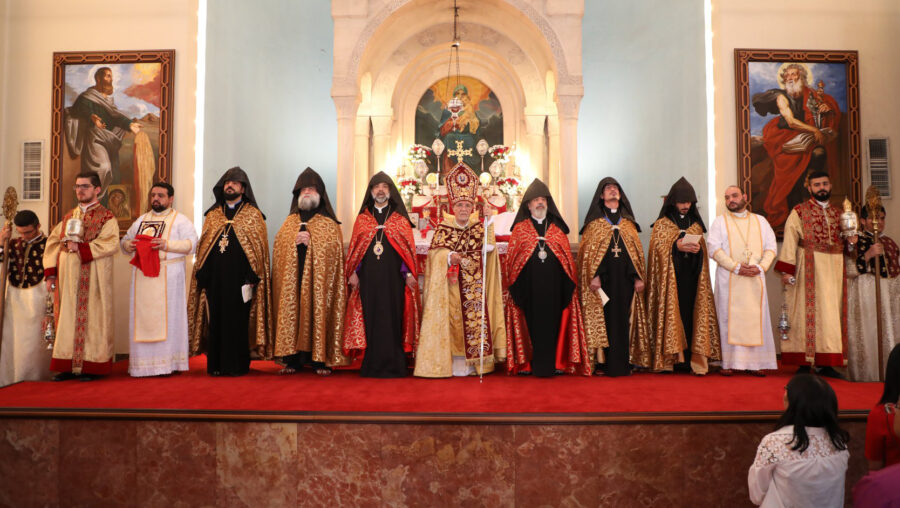Recognising the massacre of Armenians as genocide helps renew commitment to combating atrocities, says CCA General Secretary
 Remembering the martyrs of the Armenian genocide during a Holy Eucharistic service held at the Cathedral of Armenian Church Catholicosate of Cilicia, which was organised in conjunction with the CCA Executive Committee meeting in Antelias, Lebanon in 2018 (File photo)
Remembering the martyrs of the Armenian genocide during a Holy Eucharistic service held at the Cathedral of Armenian Church Catholicosate of Cilicia, which was organised in conjunction with the CCA Executive Committee meeting in Antelias, Lebanon in 2018 (File photo)
CHIANG MAI: The Christian Conference of Asia (CCA) joins with millions of Armenians all over the world, especially the Armenian diaspora scattered across Asia, who welcomed the US government’s decision to recognise the massacre of about 1.5 million Armenians in 1915 as genocide.
The Armenian churches uniquely represent the Armenian people in the international ecumenical family and have been expressing their concerns, anguish, and pain consistently; they have persistently been demanding recognition of genocide and reparation.
The CCA member churches include the Armenian diaspora churches spread across different parts of Asia such as in Iran, Australia, New Zealand, Hong Kong, Thailand, and Japan.
The General Secretary of the CCA Dr Mathews George Chunakara stated that although late, the decision of the President of the USA now recognising the massacre that took place more than a century ago as genocide is an honour for those Armenians who perished in the Armenian genocide.
“President Biden’s decision is a good gesture of reminder to the international community about the pain of millions of Armenian descendants around the world. The Armenian Genocide has serious implications for the Armenian people and the international community ever since the massacre took place. It is also a great opportunity for the international community to renew their commitment to combating atrocities in this troubled world, as well as to work for healing and reconciliation,” said the CCA General Secretary.
Dr Mathews George Chunakara further added that the Armenian Church, consistent with its role in the Armenian communities across the world, is the natural vehicle and interpreter of the Armenian protest against the 1915 genocide and of the Armenian demand for justice. However, the history and plight of the Armenians were not known widely among the churches in different regions including in Asia. The decision of the US authorities now will be helpful in prompting the international community and Turkey to acknowledge the Armenian genocide.
It is widely believed that around 1.5 million Armenian Christians were killed during massacres and deportation campaigns carried out against the Armenians by the Ottoman Empire. The leaders of Turkey, the modern-day successor of the Ottoman Empire, have maintained the position that the massacre and persecution that took place did not possess the scale or magnitude that could justify the use of the term genocide as claimed by Armenians.
In Antelias, Lebanon, on the occasion of the Remembrance Day of Armenian Genocide on 24 April 2021, His Holiness Catholicos Aram I pointed out that the genocide which was planned and executed by the Ottoman Turkish Empire was an inseparable and undeniable part of history.
“It is a legal demand according to the international law which clearly displays the right of a people who are a victim of genocide. The struggle for justice is sacred, because justice is a God-given reality and its violation is a sin against God. Our claim is deeply rooted in the common consciousness of our nation because the intention of those who perpetrated genocide against Armenians was to annihilate a whole nation,” emphasised Aram I.
Turkey opposes the use of the term genocide. Article 301 of Turkey’s penal code criminalises anyone who uses the term genocide, charging them with the crime of “insulting Turkishness”.










